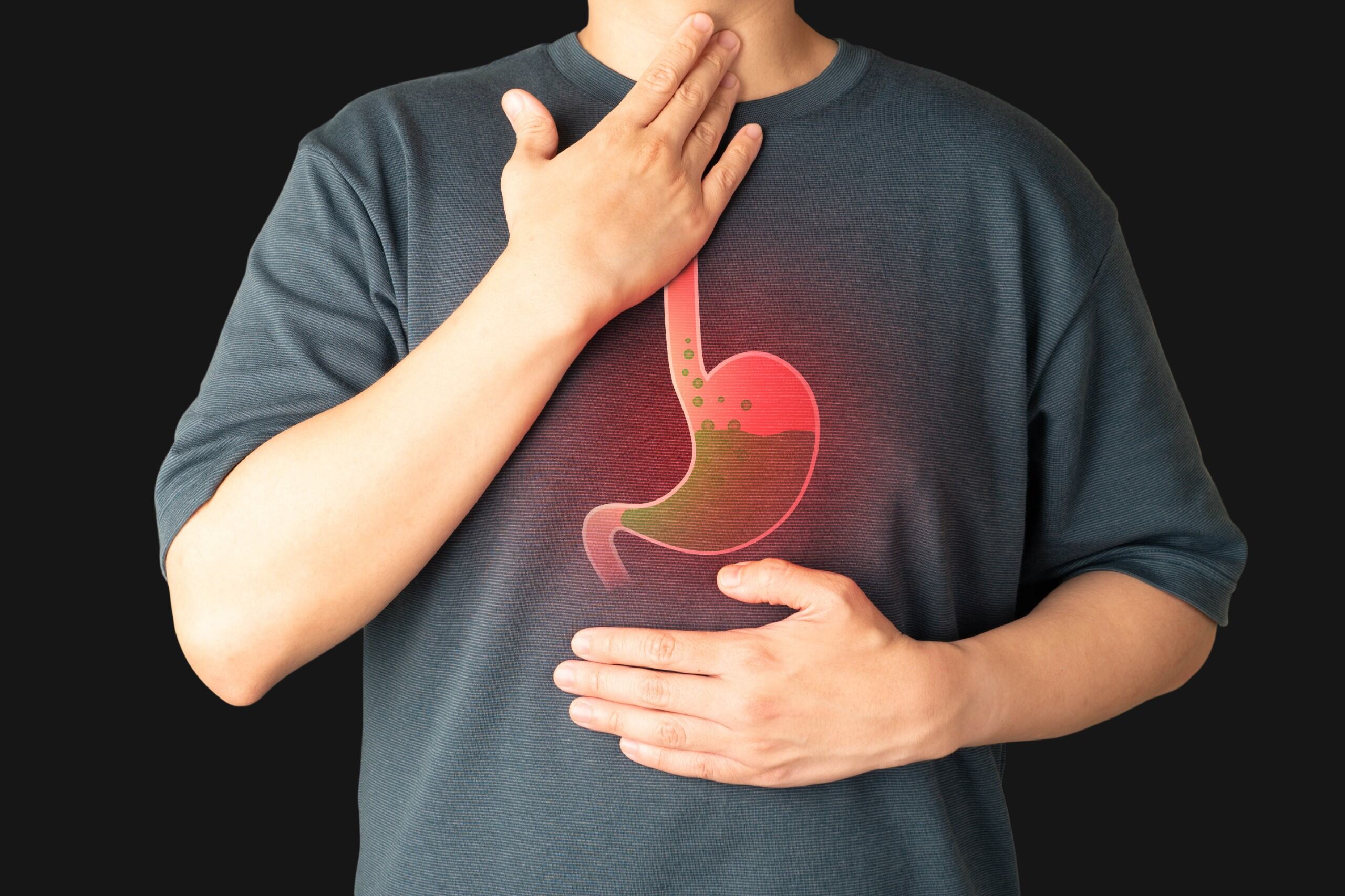Indigestion, medically known as dyspepsia, refers to discomfort or pain in the upper abdomen, often occurring after eating. It is a common issue that can disrupt daily life, causing symptoms like bloating, nausea, or an upset stomach. While occasional indigestion is not typically a cause for concern, chronic indigestion may signal underlying health problems that need medical attention.
This comprehensive guide explores indigestion symptoms, causes, treatment options, and remedies to help you better understand and manage this condition.

Indigestion is not a disease but rather a collection of symptoms that indicate problems with the digestive system. It often occurs after eating or drinking and can vary in intensity and duration.
Commonly linked to excess stomach acid symptoms, indigestion may result from dietary habits, stress, or underlying medical conditions. It can be temporary or chronic, with symptoms recurring over a longer period.
Indigestion symptoms can range from mild discomfort to severe pain. They may include:
If these symptoms persist, they may indicate chronic indigestion, which requires medical evaluation.
Understanding the causes of indigestion can help manage and prevent it.:
Eating habits play a major role in triggering indigestion. Overeating or eating too quickly can overwhelm the digestive system, leading to discomfort. Consuming fatty, spicy, or acidic foods, such as fried snacks or citrus fruits, is another common cause. Additionally, beverages like caffeine, alcohol, and carbonated drinks can irritate the stomach lining, exacerbating symptoms.
Unhealthy lifestyle choices can significantly contribute to indigestion. Smoking weakens the oesophageal sphincter, allowing stomach acid to flow back into the oesophagus and causing heartburn. Stress and anxiety can disrupt the normal functioning of the digestive system, worsening symptoms. Moreover, lying down immediately after eating slows digestion and increases the risk of acid reflux.
Several underlying medical conditions are linked to indigestion. Gastroesophageal reflux disease (GERD) often results in a burning sensation in the chest due to stomach acid backing up into the oesophagus. Peptic ulcers, which are sores in the stomach lining, can cause persistent indigestion pain. Gallstones, or hardened deposits in the gallbladder, and pancreatitis, the inflammation of the pancreas, also interfere with normal digestion, leading to recurring symptoms.
Certain medications can irritate the stomach lining and cause indigestion. Painkillers, antibiotics, and iron supplements are notable culprits. These drugs may disrupt the natural balance of the stomach, contributing to discomfort. Understanding how medications affect your digestive system is crucial, especially if indigestion becomes a frequent issue.
Diagnosing indigestion is a step-by-step process designed to uncover the root cause of your symptoms.
The first step involves a detailed discussion about your health. Your doctor will inquire about the nature, frequency, and severity of your discomfort. They may also ask if specific triggers, such as particular foods or stress, seem to worsen your symptoms. Understanding your lifestyle and dietary habits is crucial in identifying contributing factors.
Next, a physical examination is performed. During this, your doctor will gently press on your abdomen to check for tenderness, bloating, or other abnormalities. These physical clues can point to underlying issues like excessive gas, inflammation, or other digestive concerns.
If necessary, additional tests are ordered to delve deeper:
Treatment for indigestion depends on its underlying cause.
Medications :
Stress Management :
Stress and anxiety are common triggers for chronic indigestion, as they can disrupt normal digestive processes. Incorporating stress-relief practices like deep breathing exercises, meditation, or yoga can help calm your nervous system and improve digestion. Even taking a few moments to relax before meals can make a significant difference.
Dietary Adjustments:
Home Remedies
Natural indigestion remedies can help alleviate mild symptoms.
Chronic Indigestion
For chronic indigestion, treating the underlying condition, such as GERD or ulcers, is essential.
Seek medical advice if:
A gastroenterologist (indigestion doctor) can help diagnose and treat severe cases.
Indigestion is a common condition that can often be managed with simple lifestyle changes and over-the-counter treatments. However, persistent or severe symptoms may indicate a more serious issue requiring medical attention. Understanding the causes, symptoms, and treatment options can empower you to take control of your digestive health.
What is the main cause of indigestion?
The main cause of indigestion is overeating or consuming fatty, spicy, or acidic foods. Stress, smoking, and certain medical conditions like GERD can also contribute.
What is the best thing for indigestion?
The best approach is to avoid trigger foods, eat smaller meals, and use antacids or other indigestion medicine as needed.
What does it feel like to have indigestion?
Indigestion often feels like a burning sensation or discomfort in the upper abdomen, accompanied by bloating, nausea, or a sour taste in the mouth.
How long can indigestion last?
Indigestion can last from a few minutes to several hours. If it persists for weeks, consult a doctor for the best treatment for indigestion.